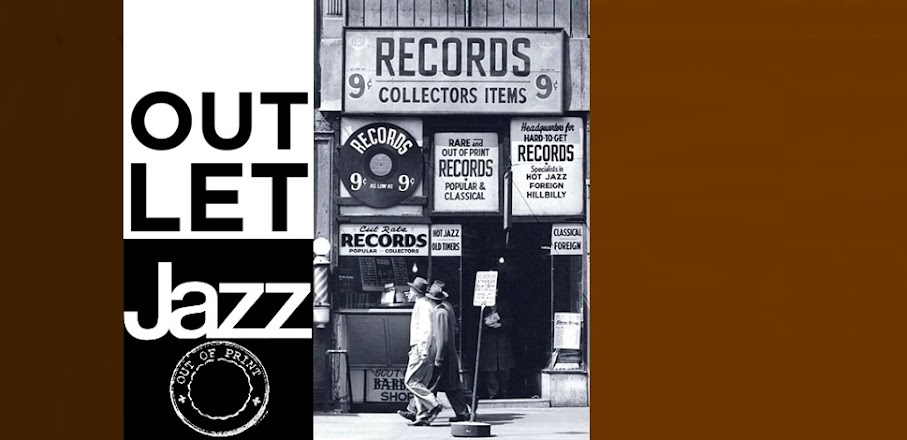Since the advent of what is commonly referred to as "modern" jazz, there has been an opportunity to make the acquaintance of a constantly increasing number of fascinating performers — but very few of these encounters may be said to produce both the electric atmosphere and the general air of well-being which surrounds an introduction to Miss Barbara Carroll. Pert, pretty, personable, she is, although a fairly recent addition to the roster of jazzdom's great, a performer who gives unstintingly of herself in the projection of some of the most delicious sounds of the contemporary era. She is certainly no ordinary pianist — she can swing with the best, her lyric touch is full of a rhapsodic poignancy and although she has a wide-ranging and profound technique, she has not allowed herself to become a captive of it.
A native of Worcester, Massachusetts, Barbara has come a long way from the childhood days when, to make youthful ends meet, she gave piano lessons to her playmate for a flat rate of twenty-five cents. She worked her way through the New England Conservatory of Music in Boston and, soon after, began to make fairly regular appearances in night spots both in Bean City and New York. It was in the latter metropolis that fortune finally smiled upon her, for while playing at a Manhattan establishment called The Embers, she was simultaneously discovered by the critics and public alike. Since that date, only a few years ago, she has not only returned countless times to the scene of her first triumph, but has also spread her particularly happy brand of piano magic in most of the other major cities of the country. *Bill Zeitung (liner notes)*
Pianist Barbara Carroll's fifth recording for RCA Victor dates from 1955. She leads a trio with bassist Joe Shulman and drummer Ralph Pollack on this mixture of bop and lightly swinging instrumentals, focusing on standards, pop tunes of the day, and a pair of originals. Her approach to her instrument can be compared to her good friend Marian McPartland, though her style is very much her own. One of the interesting obscurities present is Harold Arlen's "Two Ladies in de Shade of de Banana Tree", played in a modified calypso setting. Highlights of this album include her sauntering take of "My Heart Belongs to Daddy", a delightful romp through "Have You Met Miss Jones", and her easygoing theme song from the beginning of her career, "Barbara's Carol".
Long out of print, this LP will be somewhat difficult to acquire. *Ken Dryden*
Barbara Carroll, an unfairly forgotten jazzwoman whose style brought a refreshing and individual voice in the tumultuous New Yorks jazz scene of the 50s. She is known among female piano players, as the first to venture into the progressive Bop style that was especially associated with Bud Powell.
Simply an excellent jazz pianist. *John S. Wilson*
Miss Carroll, as easy-to-take jazz pianist, swings with the best of 'em. Both jazz and plain buyers can be sold this happy collection of tunes, including such as "It's All Right With Me", "Love Is A Single Thing", "Happiness Is A Thing Called Joe" and her theme, "Barbara's Carol". Ralph Pollack on drums and hubby Joe Shulman on bass help out. *Billboard, January 28, 1956*
Side 1
1 - Everything I've Got Belongs To You
(Rodgers, Hart)
2 - It's All Right With Me
(Cole Porter)
3 - Happiness Is A Thing Called Joe
(Harold Arlen, E. Y. Harburg)
4 - Almost Like Being In Love
(Fred Lowe, Alan Jay Lerner)
5 - Love Is A Simple Thing
(Arthur Siegal, June Carroll)
6 - Get Happy
(Harold Arlen, Ted Koehler)
Side 2
7 - Two Ladies In De Shade Of De Banana Tree
(Harold Arlen, Truman Capote)
8 - My Heart Belongs To Daddy
(Cole Porter)
9 - You're Mine You
(John Green, Edward Heyman)
10 - Have You Met Miss Jones
(Rodgers, Hart)
11 - I'm Glad There Is You
(Paul Madeira, Jimmy Dorsey)
12 - Barbara's Carol
(Barbara Carroll)
Barbara Carroll (piano, celeste), Joe Shulman (bass), Ralph Pollack (drums).
Recorded in New York City, June 3 (#5, #6, #7, #8, #11), June 4 (#1, #2, #4, #9, #10, #12) and June 6 (#3), 1955.


https://1fichier.com/?7xh114k168q61g7aatrn
ReplyDeleteGracias Hector. Para mi otro descubrimiento.
ReplyDeleteGracias,
ReplyDeleteThank you, blbs.
ReplyDelete